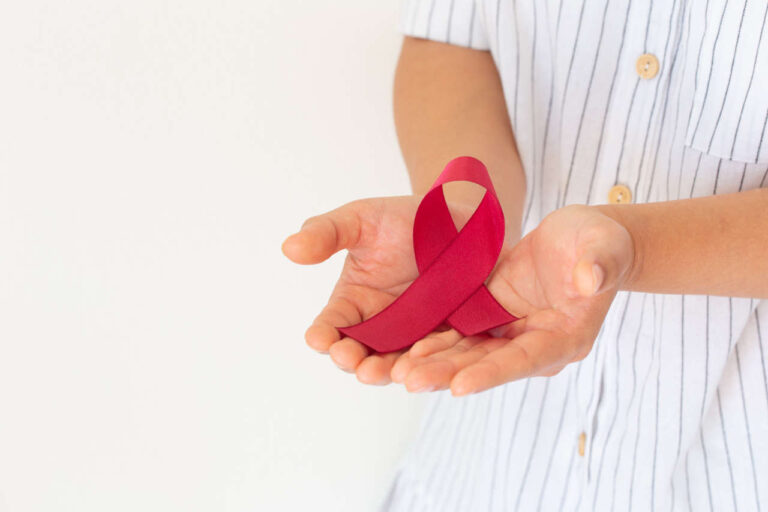
Eligard is the brand name for the medication leuprolide acetate, given subcutaneously. It is a type of hormone therapy that is used for relieving the symptoms of advanced prostate cancer.
Eligard Indications, Composition, and Manufacturer
What Is Eligard Used For?
Eligard is a prescription-only injectable medication that is used in the palliative treatment of advanced prostate cancer. Advanced prostate cancer refers to both locally advanced (stage 3) prostate cancer and metastatic (stage 4) prostate cancer. Eligard is administered into the subcutaneous tissue, which is located directly beneath the skin.
Speak to a Specialist
Manufacturer
Since 2004, the FDA has approved Eligard for the treatment of advanced prostate cancer. Eligard is a global product that is marketed worldwide. It is manufactured and marketed by Tolmar Inc., its inventor and developer.
Eligard Composition
Eligard is a long-acting injectable suspension of leuprolide acetate, also known as leuprorelin. It helps in the palliative treatment of advanced prostate cancer by reducing testosterone levels in the body, which can significantly slow the growth of the prostate tumor.
Once an Eligard injection is administered to a patient, leuprolide acetate, the active ingredient in Eligard, is released slowly [1]. This slow release is possible because Eligard uses a specialized drug delivery system called Atrigel [2].
Hormone Therapy in Advanced Prostate Cancer
Medical Versus Surgical Castration
Reducing the male sex hormone testosterone helps stop the growth of prostate cancer cells. This is done via a process known as castration, which is a type of hormone therapy that involves the removal of testicular function either surgically or medically. Surgical removal of the testicles is the simplest and the least expensive method of castration. Because it is permanent, however, it is not preferable to most patients. Medical castration, on the other hand, is done by administering medications that block testosterone production. In exchange for keeping the testes intact, doses of these drugs must be repeated regularly for an indefinite period of time to maintain castration status.
Eligard vs. Lupron
Both Eligard and Lupron Depot contain the same active drug, leuprolide acetate. They are both long-acting preparations that are designed to release the medication slowly over several months. The only difference is that Eligard is given subcutaneously, the layer just underneath the skin, while Lupron Depot is given intramuscularly. The decision to use one over the other depends on preference and insurance coverage. Both forms must be administered by trained healthcare professionals.
Speak to a Specialist About Copay Assistance
Eligard Mechanism of Action in Prostate Cancer
Androgens such as testosterone stimulate the growth of prostate cancer cells. Eligard works to reduce male hormones in the body to counteract this.
How the Body Produces Testosterone
There are three major body parts involved in the production of testosterone: the hypothalamus, the pituitary gland, and the testicle.
- The hypothalamus is a region in the center of the brain that regulates the body’s autonomic nervous system.
- The pituitary gland is a small, pea-sized gland at the base of the brain that is responsible for stimulating other organs to produce regulatory hormones.
- The testicle is a male reproductive organ that produces testosterone and sperm.
The hypothalamus releases a hormone called gonadotropin-releasing hormone (GnRH), which stimulates the pituitary gland to release gonadotropins into the bloodstream. Gonadotropins are a set of hormones that include follicle-stimulating hormone (FSH), luteinizing hormone (LH), and chorionic gonadotropin (hCG). Of the three, LH is the one responsible for signaling the production of testosterone. When LH reaches the Leydig cells in the testicles, testosterone is converted from cholesterol through a process known as testosterone biosynthesis.
Eligard Structure and Effects
The hypothalamus releases GnRH in pulses mainly due to the negative feedback from the presence of sex hormones. This works with the pituitary gland because it deregulates the number of GnRH receptors as a result of stimulation in order to prevent the potential overproduction of gonadotropins. Eligard utilizes these mechanisms to achieve castration.
Leuprolide acetate is a GnRH analog. It binds to GnRH receptors on the pituitary gland, and it mimics the effect of the actual hormone. Therefore, when Eligard treatment is started for the first time, the body perceives it as a pulse of GnRH. This causes a transient, increased production of gonadotropins and testosterone in the first 2 to 4 weeks of treatment. Over time, however, with constant stimulation of the GnRH receptors, the pituitary gland becomes almost completely desensitized from GnRH, leading to an indirect blockade of gonadotropin production. Without LH, the testicles stop producing testosterone. As a result, the body achieves castrate levels of testosterone (<50 ng/dl). This effect has been shown to maintain for up to seven years with Eligard therapy [2].
Other Hormone Therapies in Advanced Prostate Cancer
There are several other ways to reduce testosterone levels in the body. The following medications work differently from Eligard, but they achieve the same general purpose of reducing androgen levels in the body to discourage prostate tumor growth:
- GnRH antagonists: Orgovyx (relugolix) and Firmagon (degarelix)
Like Eligard, these medications bind to GnRH receptors on the pituitary gland. However, binding does not stimulate the production of gonadotropins. Instead, they bind for the purpose of directly blocking the effect of GnRH.
- Xytiga (abiraterone)
- This medication blocks the activity of one of the main enzymes involved in testosterone biosynthesis.
- Though to a much lesser degree than the testicles, the adrenal glands may also produce testosterone. Because the effects of Xytiga are not organ-specific, it may also block this source as well.
- Androgen receptor blockers: Xtandi (enzalutamide), Erleada (apalutamide), and Nubeqa (darolutamide)
- These medications bind to androgen receptors and prevent cells from responding to the presence of testosterone.
- An antiandrogen may be temporarily prescribed to help reduce the side effects associated with the transient rise in testosterone levels during the initial phase.
Get Financial Assistance
What Are Some of the Side Effects of Eligard?
Common Side Effects
As with most therapies, Eligard treatment is not without side effects. The following is a list of some of the more common ones that a patient may experience [5]:
- Injection site reactions such as transient burning, stinging, bruising, or swelling
- Weakness, numbness, unsteadiness
- Hot flashes, sweating
- Muscle pain
- Diarrhea
- Nausea or vomiting
- Dysuria
- Weight gain
- Hair loss
- Decreased libido, erectile dysfunction
Transient Side Effects
In the first 2 to 4 weeks of treatment, patients may experience a temporary aggravation of the symptoms associated with prostate cancer. This is due to the initial increase in testosterone levels at the early treatment phase [6]. During this time, patients may develop new symptoms or experience worsening of their existing ones, such as bone pain, urinary disruptions, and fatigue. Once the testosterone levels begin to drop, these symptoms gradually improve over time.
Serious Adverse Effects
There are some severe adverse effects of Eligard to consider. Patients taking Eligard may be at a greater risk of developing the following complications:
- Cardiovascular: chest pain, heart attack, arrhythmia, stroke
- Endocrine: diabetes and other metabolic disorders, pituitary gland dysfunction (rare), gynecomastia
- Neurological: seizure
- Psychiatric: mania, depression
- Skeletal: thinning of bones, fractures
- Genitourinary: infertility, testicular shrinkage
Although patients with predisposing factors are at greater risks of encountering the above issues, those who are otherwise healthy may also develop them during Eligard therapy. Many of these complications gradually develop. There will likely be signs before they truly become problematic, either as onsets of new symptoms or from blood work. Therefore, it is very important to be transparent and maintain regular communication with the doctor while on this treatment.
Discontinuation of Eligard may be dependent on the severity of these potential adverse events. Eligard should not be used in patients who are allergic to any of its components.
Consult a Specialist
Get Treatment AssistanceEligard Dose in Prostate Cancer
Eligard is available in 4 different doses: 7.5 mg, 22.5 mg, 30 mg, and 45 mg. These preparations release leuprolide acetate over 1, 3, 4, and 6 months, respectively [2]. Therefore, an Eligard injection containing 7.5 mg of leuprolide acetate needs to be repeated monthly, while an injection that contains 45 mg needs to be given only once every 6 months. They deliver the same amount of medications in a given time frame, and the selection is dependent on the desired duration of treatment.
Eligard is administered subcutaneously, in the layer just underneath the skin. Each Eligard pack contains two syringes, and the contents need to be mixed immediately before the injection is administered.
What Are the Benefits of Eligard Therapy in Prostate Cancer?
According to the FDA label, Eligard has shown over 95% effectiveness in clinical studies in reaching clinically important testosterone suppression (levels below 50 ng/ml) persistently over the expected duration of benefit. Only 1% – 3% of patients taking Eligard reported a concentration higher than the castrate threshold of 50 ng/ml [2]. Patients taking Eligard also showed a consistent reduction of 86% – 98% in the prostate-specific antigen (PSA) levels in those studies. PSA is an indicator of prostate cell activity. Reduced PSA levels in prostate cancer indicate lower activity of prostate cancer cells.
For How Long Should You Take Eligard in Prostate Cancer?
Your doctor may prescribe Eligard for as long as there are benefits. Leuprolide acetate has been used continuously for up to 7 years in some long-term studies [2]. Your doctor may prescribe Eligard in combination with other hormone therapy medications such as Xtandi [7], especially early in the therapy, to better manage testosterone levels.
Cost
The cost of Eligard varies among the four available dosages. Depending on the insurance and pharmacy, the cost of each preparation may further vary. Therefore, the exact cost is difficult to determine until a prescription has been evaluated. In general, however, the cost of a 1-month injection (7.5 mg) of Eligard is around $500.
Speak to a Specialist
Copay Assistance
Eligible patients with prostate cancer may receive Eligard under the Eligard Patient Assistance Program. Services under this program are provided by Eligard’s manufacturer, Tolmar Inc [8]. Speak to an AmeriPharma® specialist to learn more and apply to copay assistance programs.
REFERENCES:
- Sartor O. Eligard: leuprolide acetate in a novel sustained-release delivery system. Urology. 2003 Feb;61(2 Suppl 1):25–31.
- FDA [Internet]. [cited 2021 Nov 3]. Available from: https://www.accessdata.fda.gov/drugsatfda_docs/label/2007/021731s005,021488s010,021379s010,021343s015lbl.pdf
- Hormone Therapy for Prostate Cancer [Internet]. [cited 2021 Oct 30]. Available from: https://www.cancer.org/cancer/prostate-cancer/treating/hormone-therapy.html
- Hormone Therapy for Prostate Cancer Fact Sheet – National Cancer Institute [Internet]. 2021 [cited 2021 Nov 7]. Available from: https://www.cancer.gov/types/prostate/prostate-hormone-therapy-fact-sheet
- Further Detailed Information on Treatment and Side Effects | PCFA [Internet]. [cited 2021 Nov 3]. Available from: https://www.prostate.org.au/awareness/further-detailed-information/commonly-used-drugs-in-treatment-of-prostate-cancer/eligard/
- Home – Eligard Patient Website [Internet]. [cited 2021 Nov 3]. Available from: https://eligard.com/
- FDA Label for Xtandi [Internet]. [cited 2021 Nov 2]. Available from: https://www.accessdata.fda.gov/drugsatfda_docs/label/2020/213674s000lbl.pdf
- Patient Coverage, Assistance, and Reimbursement – ELIGARD® [Internet]. [cited 2021 Nov 7]. Available from: https://eligardhcp.com/
- “Gonadotropins.” LiverTox: Clinical and Research Information on Drug-Induced Liver Injury, National Institute of Diabetes and Digestive and Kidney Diseases, 26 March 2018.
- Handelsman DJ. Androgen Physiology, Pharmacology, Use and Misuse. [Updated 2020 Oct 5]. In: Feingold KR, Anawalt B, Boyce A, et al., editors. Endotext [Internet]. Dartmouth (MA): MDText.com, Inc.; 2000. Available from: https://www.ncbi.nlm.nih.gov/books/NBK279000/












